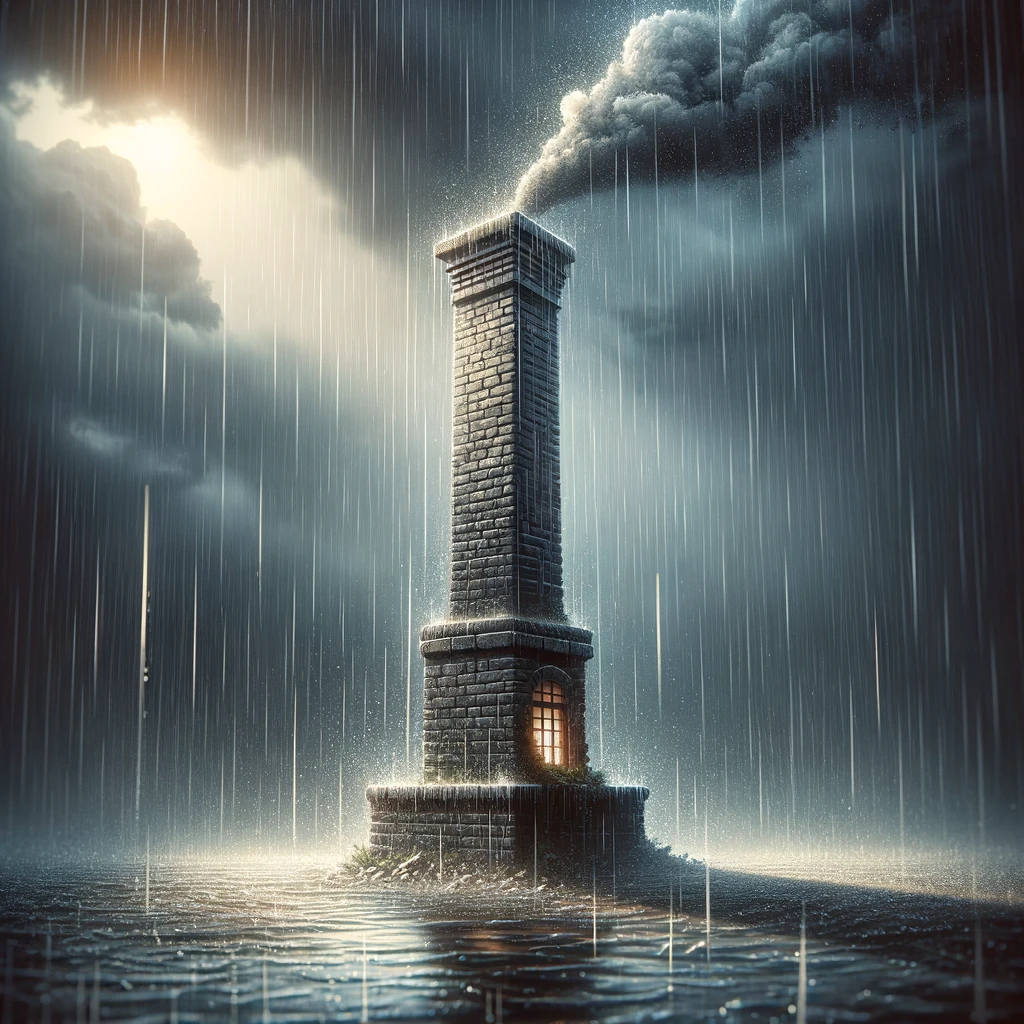
Chimney leaks during rain are a common issue that homeowners face, leading to damage not only to the chimney itself but also to the surrounding structure. Understanding the causes of these leaks is essential for effective prevention and repair. Here are ten common reasons why chimneys may leak during rainy weather.
1. Cracked Chimney Crown
The chimney crown, the top element of the chimney that covers and seals the top of the chimney from the flue liner to the chimney edge, can develop cracks over time due to weather exposure. These cracks allow water to seep in, especially during rain.
2. Damaged Chimney Flashing
Flashing is the seal between the chimney and the roof. If this flashing is damaged, improperly installed, or wears out over time, water can enter the space between the chimney and the roof, leading to leaks.
3. Worn-Out Mortar Joints
Mortar joints between bricks or stones can deteriorate over time due to exposure to the elements. When mortar erodes, it creates pathways for water to enter the chimney structure.
4. Faulty Chimney Cap or Cover
A chimney cap or cover is designed to prevent rain, animals, and debris from entering the chimney. If the cap is missing, damaged, or improperly fitted, water can easily enter the chimney during rainstorms.
5. Porous Bricks or Stonework
Over time, bricks and stonework can become porous, absorbing water during rain. This moisture can then penetrate through the chimney walls, causing leaks.
6. Condensation Build-Up
In improperly lined or insulated chimneys, warm, moist air from inside the home can condense on the cooler chimney surfaces, leading to water accumulation and leaks.
7. Leaking Chimney Liner
A damaged or deteriorating chimney liner can allow water to seep through and leak into the chimney. Regular inspections can help identify and address any liner issues.
8. Obstructed Chimney
Blockages in the chimney, such as bird nests, leaves, or other debris, can prevent proper water drainage, leading to accumulation and potential leaks.
9. Inadequate Roofing Integration
If the chimney is not correctly integrated into the roofing system, or if there are gaps or holes at the point where the chimney penetrates the roof, water can leak into these openings during rain.
10. Improper Chimney Design or Installation
Chimneys that are poorly designed or installed can have inherent flaws that make them susceptible to water intrusion. Issues like inadequate slope on the crown or improperly sized caps can contribute to leaks.
Conclusion
Chimney leaks during rain can result from various factors, ranging from structural damage to installation errors. Identifying the source of the leak is the first step towards resolving the issue. Regular maintenance, including inspections and timely repairs, is key to preventing water damage and ensuring the longevity of your chimney. If you suspect a leak in your chimney, it’s advisable to consult with a professional chimney service to accurately diagnose and address the problem.
